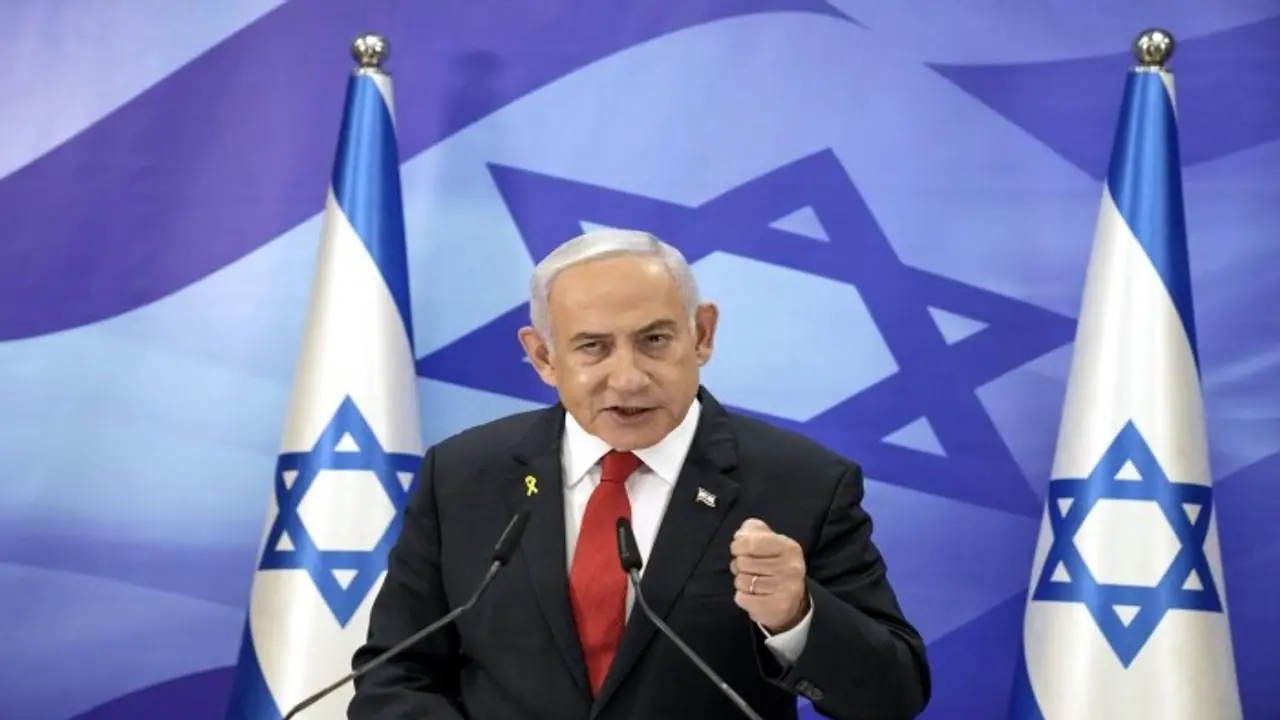Netanyahu has declared that Israel will take control of the entire Gaza Strip. In a video message, he said, “We are going to take control of the entire territory of the Gaza Strip.”
In a new video statement, Israeli Prime Minister Benjamin Netanyahu said that Israel will take control of the entire Gaza Strip. He also explained why limited humanitarian aid is still being allowed into Gaza, despite ongoing military operations.

Netanyahu said the aid is necessary to avoid famine and maintain international support. "To complete the victory, defeat Hamas and free our hostages, we must not reach a state of starvation—both practically and politically, they simply won’t support us," he explained. He added that Israel was "approaching a red line" where chaos could break out if the humanitarian situation worsened, reports Türkiye Today.
Netanyahu also admitted that Israel must act to prevent famine in Gaza — not purely for humanitarian reasons, but "for diplomatic reasons." His remarks come amid international pressure over the worsening humanitarian crisis in Gaza and growing criticism of Israel’s military operations in the densely populated region.
He praised the Israeli army's work in Gaza but did not share details about ongoing operations.
Ongoing airstrikes kill 30 Palestinians
Meanwhile, Israel continued heavy airstrikes across the Gaza Strip. According to Palestinian health officials cited by Anadolu Agency, at least 30 people were killed in the last round of attacks.
In Khan Younis, 15 people died in 14 airstrikes targeting homes and tents used by displaced people.
In central Gaza, five people were killed in an airstrike on a crowded market in Jabalia refugee camp.
Two more died in Gaza City’s Al-Yarmuk area.
In Deir al-Balah and Nuseirat refugee camp, eight people, including three children and a woman, were killed in four separate airstrikes.
Division inside Israeli government
Despite Netanyahu’s remarks, there is disagreement within the Israeli cabinet over the handling of humanitarian aid. Finance Minister Bezalel Smotrich, a far-right leader from the Religious Zionism party, strongly opposed aid entry, calling the current situation “madness.”
Smotrich claimed, "No aid is entering Hamas. Anyone who says otherwise is lying." He insisted that new aid delivery methods are preventing supplies from reaching Hamas and are focused only on civilians. "We are conquering and clearing until Hamas is destroyed," he said.
The Israel-Gaza Conflict
Israel’s military offensive on Gaza began on October 7, 2023, following a surprise Hamas-led attack on southern Israel. Since then, according to Gaza health authorities, at least 53,339 Palestinians have been killed and 121,034 injured in Israeli operations.
The war has caused large-scale destruction and led to a worsening humanitarian crisis in the Gaza Strip, with over a million people displaced and food, water, and medical supplies in short supply.
The Israel-Gaza conflict is one of the world’s most prolonged and complex disputes. It mainly involves the Israeli government and Hamas, the militant group that controls the Gaza Strip.
The roots of the conflict go back decades, tied to the larger Israeli-Palestinian struggle over land and sovereignty. In 2007, after winning elections, Hamas took control of Gaza from rival Palestinian group Fatah, leading to a blockade by Israel and Egypt. Since then, multiple wars and clashes have erupted, causing heavy civilian casualties and destruction in Gaza, as well as rocket attacks on Israeli towns.
The most recent war began in October 2023, after Hamas launched a surprise attack inside Israel, killing over 1,000 people and taking many hostages. In response, Israel launched a full-scale military operation in Gaza, killing tens of thousands and displacing over a million people. The fighting has led to one of the worst humanitarian disasters in the region in recent years, with UN agencies warning of famine-like conditions and widespread suffering.
Despite repeated calls for a ceasefire and peace negotiations, the violence has continued, with little sign of a political resolution. Netanyahu's latest statement signals a firm stance on keeping Gaza under Israeli control — a move that could reshape the region's future and further complicate the chances for peace.


